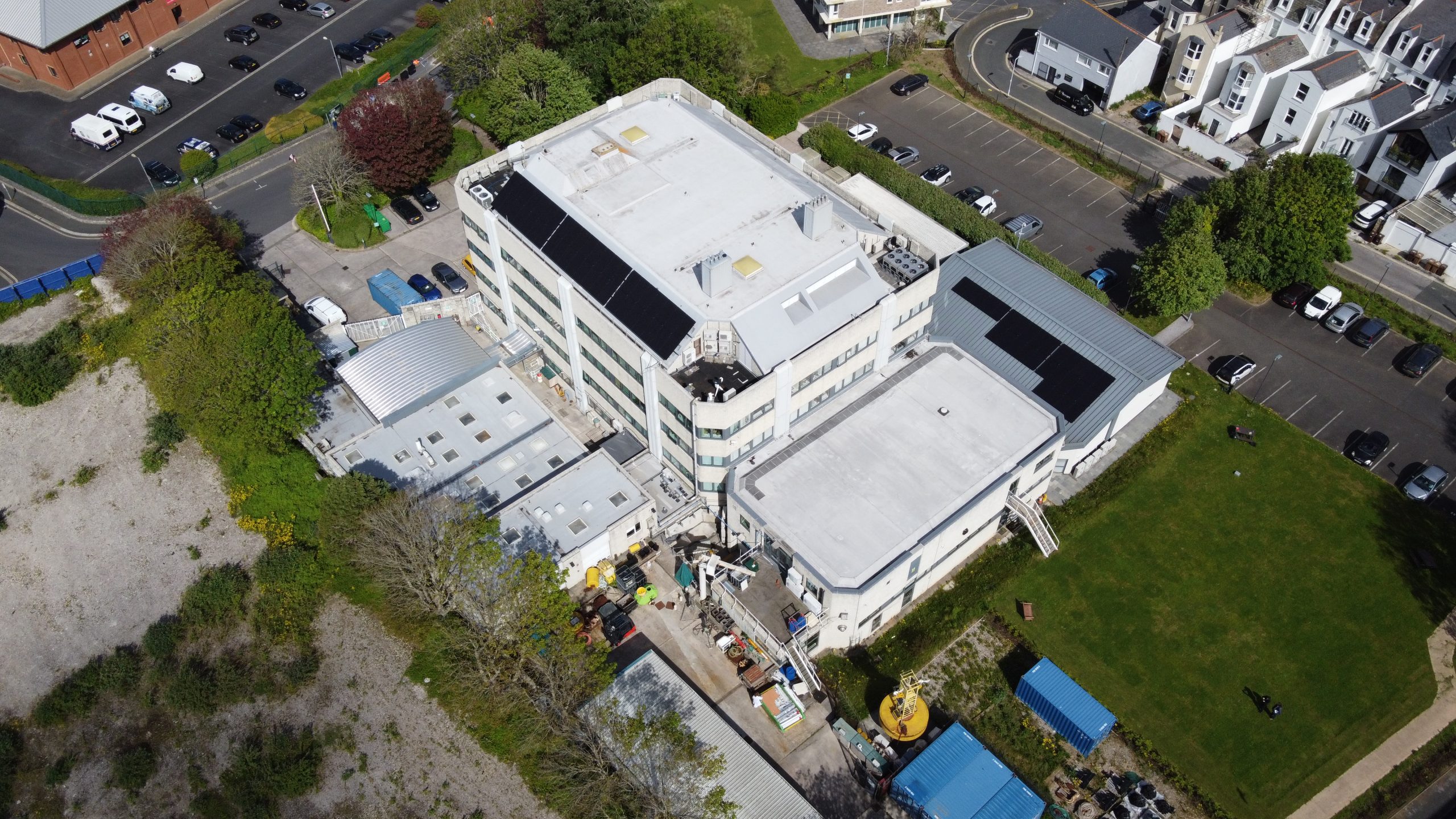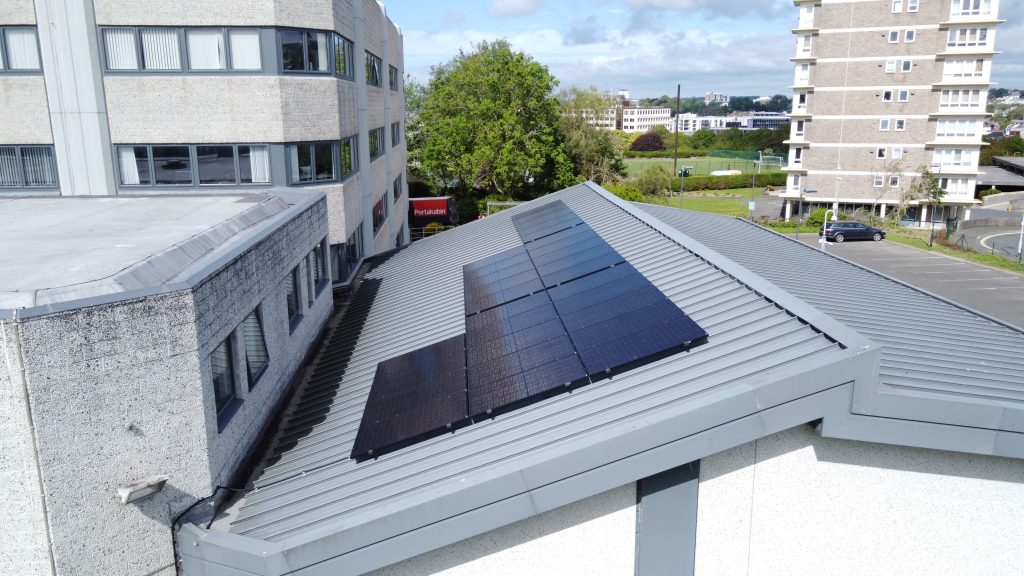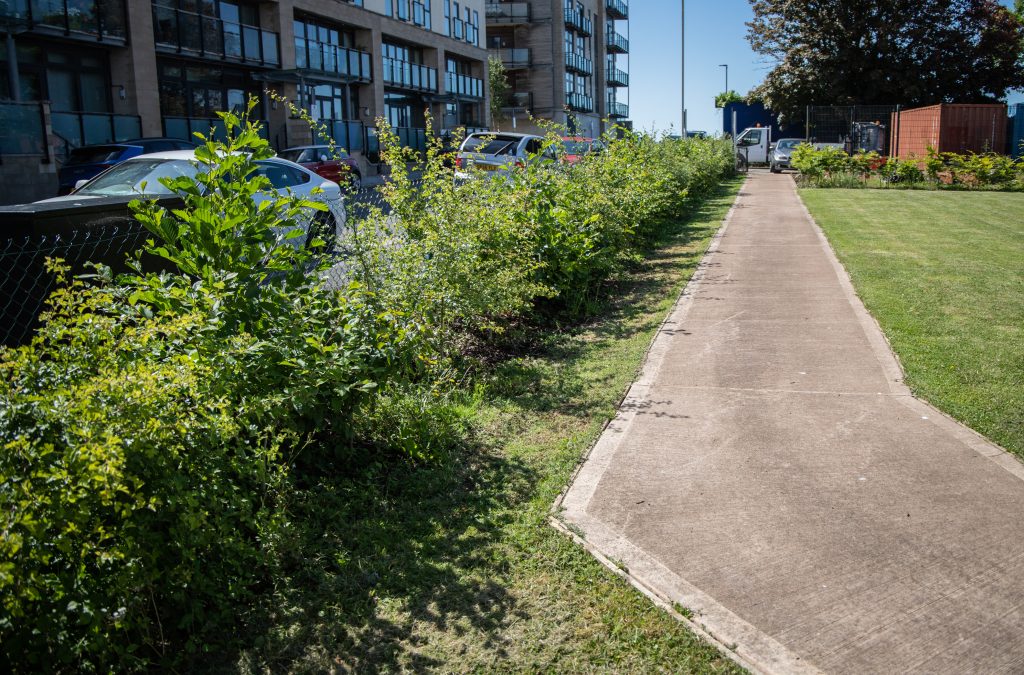In 2021, Plymouth Marine Laboratory (PML) won the Plymouth Business Awards Environmental Success of the Year, but not just for its environmental research that helps address global challenges such as climate change, pollution and biodiversity loss.
The NERC Earth Observation Data Acquisition and Analysis Service (NEODAAS) is based at Plymouth Marine Laboratory (PML) and coordinated on behalf of NERC by NCEO. NEODAAS offers a range of Earth Observation services to the UK’s scientific community. These include the provision of satellite data and custom products (including near real-time and rapid response delivery), airborne and drone data processing, training and an Artificial (AI) Intelligence service. As part of the AI service, NEODAAS operate the MAssive GPU cluster for Earth Observation (MAGEO). Between 2013 and 2019, NEODAAS supported 33 oceanic research cruises, provided custom satellite EO data processing for 89 research projects, and delivered processed data from 163 flights of environmental research aircraft carrying remote sensing systems.
Here we show PML’s progress in achieving net zero by 2040 by reducing its environmental impact and increasing the ecological value of its estates, which are primarily located at Prospect Place on The Hoe, Plymouth.
Improving PML’s environmental performance
Environmental responsibility is one of the four pillars of PML’s business strategy. This strategic priority is set out to demonstrate how PML’s business, operating across multiple sites, can operate sustainably.
PML environmental targets include:
- Achieve net zero carbon business activities by 2040 at the latest
- Significantly reduce environmental impact through sustainable resource use and reduction of carbon footprint by 2025
- Increase the ecological value of estates by 2025
Since the beginning of 2020, PML has taken steps to reduce its carbon footprint and improve the value of the grounds for biodiversity. Here are a few examples that demonstrate its progress.
Electricity generation and management
In January 2020, four electric vehicle-charging points were installed at Prospect Place. In May 2021, 26.7 kWp solar photovoltaic rooftop arrays were installed, generating an expected saving of 3.5 tons CO2 per year.
Fluorescent light fittings were replaced with efficient new LED lighting, generating a further expected saving of 4.4 tons CO2 per year.
Following these installations, energy consumption dropped by >9000 kwh per month. Accuvio, carbon management software, is used to accurately calculate emissions and identify further areas for improvement.
Heat energy assessment and planning
In February 2021, PML commissioned a heat energy, feasibility study by Plymouth engineers Hulley & Kirkwood, which evaluated options for further reductions in emissions. The study used thermal modelling, including infrared cameras, to detect heat loss. Further heating analysis and energy generation planning have identified a route to net zero by 2040. As a result, further funding was secured to design an air source heat pump to replace gas boilers. This is expected to generate a further reduction of 63 tons of CO2 per year, putting PML well on the way toward net zero.
Carpets from ocean waste
In line with a new sustainable procurement policy, the carpet installed in over 20 offices in January 2021 is made from recycled plastic recovered from the ocean.
Progressing biodiversity action plans
PML has created a five-year Biodiversity Action Plan to benefit native flora and fauna on the premises. The first part of the plan commenced in March 2021. A new perimeter hedgerow was planted that included 11 native tree species and 200 m2 of lawn replanted as wildflower meadow. The seed mix — designed by Pollenize, a Plymouth-based organisation with a mission to conserve native bees — contains more than 70 native wildflower species. These plants will support native wildlife, including threatened local populations of European dark honeybee. Since 2019, there has been a rooftop apiary for these bees as part of Pollenize’s Plymouth-wide network of research apiaries.
Further biodiversity-boosting additions this spring included a bug hotel, hedgehog house, bird houses, bird feeders, bird baths and a compost heap, all made from upcycled materials. Employees organised ‘bioblitz’ surveys to document the biodiversity improvements.
Investing in net-zero focussed companies
As a charity, PML holds reserves in investments and over the last two years has amended its investment policy to ensure they only invest in organisations that have addressed their environmental impact and are working towards net zero carbon.
Ongoing improvements during 2022
- ISO 14001: Environmental Management stage 1 audit completed, no issues flagged. Full certification visit scheduled for November 2022 to achieve accreditation.
- Lab Efficiency Assessment Framework (LEAF) rolled out across PML laboratories. This was delivered by a Low Carbon Devon intern whom we hosted for 3 months. 15 labs have achieved ‘Bronze’ status, with some now working towards ‘Silver’. Laboratory managers are actively looking at how they can reduce their power consumption by switching off unused fridges, freezers and fume hoods. Their actions will save approximately 17 tonnes of CO2 per year.
- Solar PV carport system feasibility study completed. System output: 138,000 kWh/year. Estimated savings of around 72 tonnes of CO2 per year.
- 20 native trees (silver birch, rowan and wild cherry) planted in our grounds to boost floral diversity.
- Larger bicycle shelter built with increased parking to cater for a growing number of cyclists.
- Rainwater harvesting installed and used to water plants.


